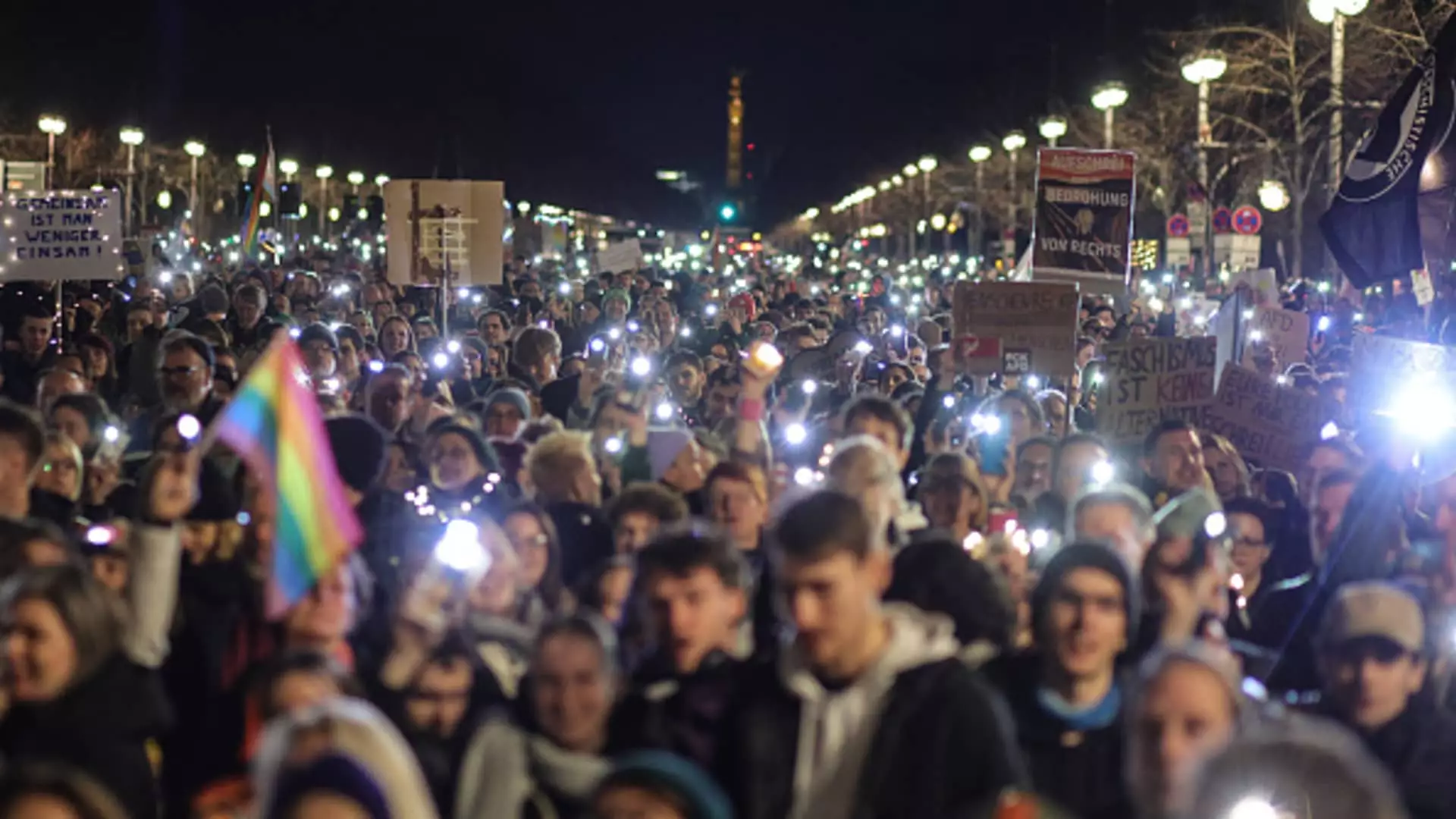On a momentous Saturday, tens of thousands of citizens took to the streets of Berlin and other key cities in Germany, expressing their concerns about the escalating influence of the far-right, anti-immigrant Alternative for Germany (AfD) party. This protest not only represented dissent against the AfD, which seems poised to make significant electoral gains in the upcoming February 23 general election, but it also served as a clarion call against the broader trend of rising populism in Europe and globally. The iconic Brandenburg Gate became a focal point of this assembly, echoing with anti-fascist sentiments as protesters carried banners and sang songs condemning the ideologies being espoused by the AfD.
Prominent figures at the rally, such as Luisa Neubauer from the Fridays for Future movement, aimed to link the rise of far-right sentiment with climate inaction, underscoring the idea that racism and environmental degradation are intertwined issues. Neubauer’s comments resonated deeply, emphasizing that the rise of extremist political ideologies jeopardizes not just marginalized communities but the entire ecological fabric of society. The police reported that around 35,000 demonstrators gathered in Berlin alone, while a similarly large turnout occurred in Cologne, cementing a national movement against divisive politics that threatens social cohesion.
Germany’s political climate has been rattled notably after the coalition government led by Chancellor Olaf Scholz disintegrated late last year, revealing deep divisions on revitalizing the economy. The backdrop of increasing social unrest and economic stagnation only enhances the appeal of populist rhetoric that seeks to blame immigrants and minorities for systemic issues. As Germany approaches its elections, the AfD has started to gain traction, with their campaign launch in Halle attracting around 4,500 attendees. Party leader Alice Weidel’s rhetoric is polarizing and aims to exploit societal fears, including those surrounding immigration and economic change.
Amidst this chaos, mainstream political factions have drawn lines in the sand, vowing not to collaborate with the AfD under any circumstances. The center-right Union bloc, led by Friedrich Merz, has found itself at a crossroads, suddenly faced with the growing allure of right-wing policies among voters. Merz’s intent to introduce tougher immigration laws rekindles concerns that he could unwittingly legitimize the AfD’s stance by adopting similar narratives. Critics fear that this trend could erode the long-standing tradition of democracy in Germany and encourage far-right extremists to gain further legitimacy and influence within the political arena.
The protests serve as a pivotal reminder that the forces of democracy must remain vigilant against growing extremism. How politicians like Merz navigate these choppy waters will be crucial, not only for the future of their parties but for the integrity of Germany’s political system itself. As activists call for action to combat both racism and climate inaction, it emerges that these struggles are deeply connected. It is imperative for all layers of society to foster dialogue, inspire unity, and ensure that democracy remains resilient against the rising tide of divisive politics.

Leave a Reply